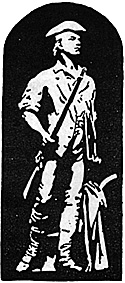 The Cold War is now ended and the almost daily threat of war between the United States and Russia has ended as well.
The Cold War is now ended and the almost daily threat of war between the United States and Russia has ended as well.
But most Americans may be surprised to learn that this 40-year long shadow war was not the first time that the United States almost came to blows with Russia.
That potential crisis first came about more than 200 years ago during the American War of Independence and you are reading about it here because it involved the Ottoman Emplre.
Hunger
Almost since its beginning, the Russian state had looked hungrily at the old and seemingly decrepit Ottoman Empire and lusted for its extensive territories in Europe.
Catherine the Great had even named one of her grandchildren Constantine and given him a Greek nursemaid so he would grow up speaking fluent Greek. All this so that when he came of age he would be prepared to rule a new Russian-dominated Byzantine Empire centered on the restored city of Constantinople.
With a singular energy and devotion, she spent the years following the peace of Kuchuk Kaynarja in 1774 planning to drive the Ottomans out of Europe.
To achieve this goal she and Count Gregory Alexandrovich Potemkin, her former lover and then commander of Russia's southern armies, came up with a plan. They would attack the Ottomans by way of America.
The Plan
The plan called for Russia to ally itself with England. It would then offer to use its army to help the King of England crush the on-going America rebellion.
In exchange for the dispatch of a large force of Russian troops to the American colonies, the English were to turn over the island of Minorca (then in the possession of the English). This island would then be made into a powerful naval base for a Russian fleet to be established in the Mediterranean. It would also serve as a fortress and rendezvous point for the insurgent Greeks who were to play a major role in Catherine's scheme.
When the time was right, this force, aided by a British Mediterranean naval squadron, would attack the Ottomans from the south while Potemkin launched the massive Russian army against the Ottomans from the north. All of this would be timed to coincide with a planned rising of the Sultan's Greek subjects.
The scheme, though, never saw the light of day. Pro-French advocates in the court, primarily Count Panin, the Russian minister of foreign affairs, prevented the plan from being put into action.
To his dying day, Prince Potemkin regretted the failure of this scheme, constantly affirming that the success of the Russian war against the Ottomans depended upon an alliance with Great Britain.
John Paul Jones
While the failure of this plan meant the Russians never came to America, the Americans did come to Russia--or at least one American did, and once again it was because of the Ottoman Empire.
That American was Admiral John Paul Jones, best known for uttering the famous phrase, "I have not yet begun to fight," in his victorious battle with the British frigate Serapis off the east coast of England in 1779.
When the War of Independence ended, Jones, who had great difficulty getting along with his fellow naval officers and his political bosses, left the newly created United States of America. He eventually took service with Catherine the Great of Russia. She made him an admiral of her newly created Black Sea fleet.
When the long-anticipated war between the Russian and the Ottoman empires finally broke out in 1787, Jones led this fleet to two impressive victories over the Ottomans in the first and second battles of Liman in June 1788. These victories gave the Russians effective control of the Black Sea for the remainder of the war. While a skilled naval officer, Jones continued to show his inability to get along with his peers and superiors, and after a particularly bitter fight with one of his fellow admirals, he left Russian service the next year.
Back to Dragoman Vol.1 No. 4 Table of Contents
Back to Dragoman List of Issues
Back to MagWeb Magazine List
© Copyright 1997 by William E. Johnson
This article appears in MagWeb (Magazine Web) on the Internet World Wide Web. Other military history articles and gaming articles are available at http://www.magweb.com